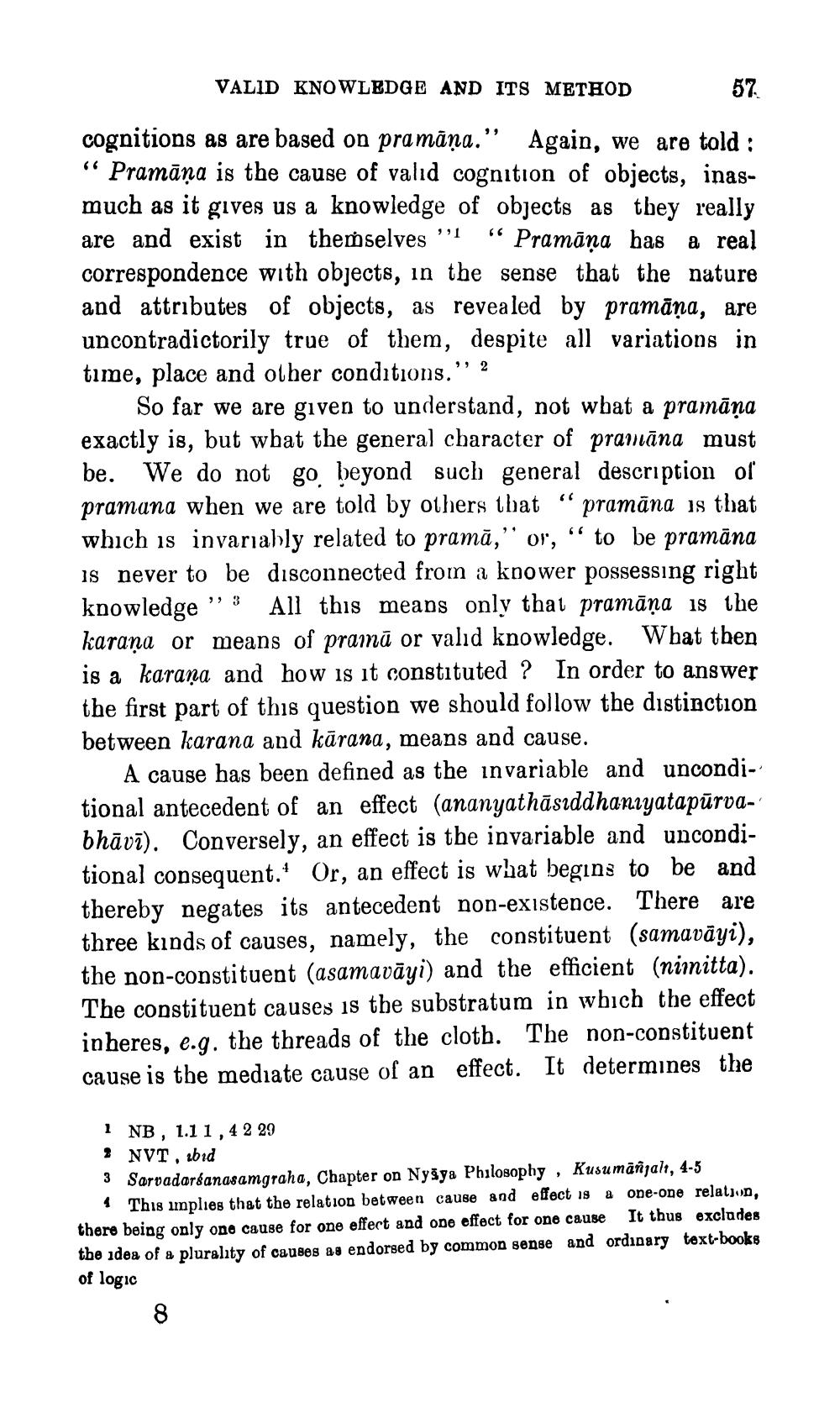________________
VALID KNOWLEDGE AND ITS METHOD 57 cognitions as are based on pramāņa.” Again, we are told : “ Pramāna is the cause of valid cognition of objects, inasmuch as it gives us a knowledge of objects as they really are and exist in themselves "1 “ Pramāņa bas a real correspondence with objects, in the sense that the nature and attributes of objects, as revealed by pramāņa, are uncontradictorily true of them, despite all variations in time, place and other conditions."' ?
So far we are given to understand, not wbat a pramāņa exactly is, but what the general character of pramāna must be. We do not go beyond such general description of pramuna when we are told by others that " pramāna is that which is invariably related to pramā,” or, “ to be pramāna is never to be disconnected from a knower possessing right knowledge " 3 All this means only that pramāņa is the karaņa or means of pramā or valıd knowledge. What then is a karana and how is it constituted ? In order to answer the first part of this question we should follow the distinction between karana and kārana, means and cause.
A cause has been defined as the invariable and unconditional antecedent of an effect (ananyathāsiddhaniyatapūrvabhāvī). Conversely, an effect is the invariable and unconditional consequent. Or, an effect is what begins to be and thereby negates its antecedent non-existence. There are three kinds of causes, namely, the constituent (samavāyi), the non-constituent (asamavāyi) and the efficient (niinitta). The constituent causes is the substratum in wbich the effect inheres, e.g. the threads of the cloth. The non-constituent cause is the mediate cause of an effect. It determines the
1 NB, 1.11,4 2 29 2 NVT, abid 3 Sarvadorsanasamgraha, Chapter on Nysya Philosophy, Kusumāñjalt, 4-5
? This implies that the relation between cause and effect is a one-one relation, there being only one cause for one effect and one effect for one cause It thus excludes the idea of a plurality of causes as endorsed by common sense and ordinary text-books of logic




